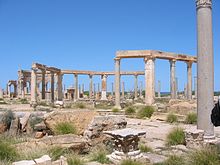204
| Millennium: | 1st millennium |
|---|---|
| Centuries: | |
| Decades: | |
| Years: |
| 204 by topic |
|---|
| Leaders |
| Categories |
| Gregorian calendar | 204 CCIV |
| Ab urbe condita | 957 |
| Assyrian calendar | 4954 |
| Balinese saka calendar | 125–126 |
| Bengali calendar | −390 – −389 |
| Berber calendar | 1154 |
| Buddhist calendar | 748 |
| Burmese calendar | −434 |
| Byzantine calendar | 5712–5713 |
| Chinese calendar | 癸未年 (Water Goat) 2901 or 2694 — to — 甲申年 (Wood Monkey) 2902 or 2695 |
| Coptic calendar | −80 – −79 |
| Discordian calendar | 1370 |
| Ethiopian calendar | 196–197 |
| Hebrew calendar | 3964–3965 |
| Hindu calendars | |
| - Vikram Samvat | 260–261 |
| - Shaka Samvat | 125–126 |
| - Kali Yuga | 3304–3305 |
| Holocene calendar | 10204 |
| Iranian calendar | 418 BP – 417 BP |
| Islamic calendar | 431 BH – 430 BH |
| Javanese calendar | 81–82 |
| Julian calendar | 204 CCIV |
| Korean calendar | 2537 |
| Minguo calendar | 1708 before ROC 民前1708年 |
| Nanakshahi calendar | −1264 |
| Seleucid era | 515/516 AG |
| Thai solar calendar | 746–747 |
| Tibetan calendar | 阴水羊年 (female Water-Goat) 330 or −51 or −823 — to — 阳木猴年 (male Wood-Monkey) 331 or −50 or −822 |

Year 204 (CCIV) was a leap year starting on Sunday of the Julian calendar. At the time, it was known as the Year of the Consulship of Cilo and Flavius (or, less frequently, year 957 Ab urbe condita). The denomination 204 for this year has been used since the early medieval period, when the Anno Domini calendar era became the prevalent method in Europe for naming years.
Events
By place
Roman Empire
- Lucius Fabius Cilo and Marcus Annius Flavius Libo become Roman Consuls.
- The Daysan River floods Edessa.
China
- Gongsun Kang, Chinese warlord of Liaodong, establishes the Daifang Commandery in northern Korea.[1]
- Battle of Ye: Warlord Cao Cao lays siege to and captures the military headquarter of Yuan Shao in Ye.
By topic
Commerce
- A trade recession in the Leptis Magna region (Africa) is alleviated by Emperor Septimius Severus, who buys up the country's olive oil for free distribution in Rome.
Births
- Cao Rui, Chinese emperor of Cao Wei (d. 239)
- Dong Jue, Chinese official and general
- Elagabalus, Roman emperor (d. 222)
- Philip the Arab, Roman emperor (d. 249)
- Wei Zhao, Chinese historian (d. 273)
- Zhuge Qiao, Chinese official and general (d. 228)
Deaths
- Gongsun Du, Chinese general and warlord (b. 150)
- Ren Jun, Chinese general under Cao Cao
- Shen Pei, Chinese official and minister
- Xin Ping, Chinese official and minister
- Xu You, Chinese adviser and strategist
